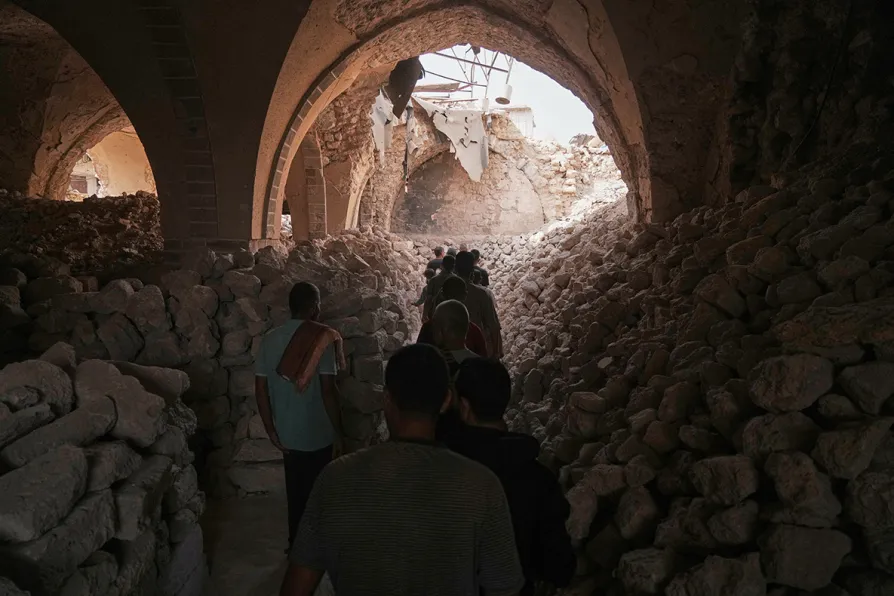
 Palestinians attend Friday prayers at the Omari Mosque in Gaza's Old City, November 7, 2025
Palestinians attend Friday prayers at the Omari Mosque in Gaza's Old City, November 7, 2025
IRAN demanded urgent action from the United Nations today to deal with “warmongering” Israel.
Tehran issued its demand a day after Israel attacked southern Lebanon, killing at least one person.
The Iranian Foreign Ministry called on the “United Nations, the international community and regional countries to confront the warmongering” of Israel, while offering its “condolences on the martyrdom of Lebanese citizens during the savage attacks.”
Israel claims the attacks were aimed at Hezbollah targets despite having agreed a ceasefire with the group a year ago.
Israel has also ignored the ceasefire deal in Gaza by continuing its air attacks on Khan Younis.
Israeli attacks also hit the town of Bani Suheila, just east of Khan Younis, while aerial bombardment took place to the east of the southern city.
Despite the ceasefire, which has now been in force since October 10, Israeli forces have reportedly killed more than 240 Palestinians.
The ceasefire has also failed to deal with the major humanitarian crisis facing Palestinians in Gaza, with Israel continuing to block aid reaching the enclave’s suffering population.
The UN revealed today that Israeli authorities have rejected 107 requests for the entry of desperately needed aid into Gaza since the beginning of the truce.
UN spokesperson Farhan Haq said: “Our partners report that since the ceasefire, the Israeli authorities have rejected 107 requests for the entry of relief materials including blankets, winter clothes and tools and materials to maintain and operate water, sanitation and hygiene services.
“Almost 90 per cent of these rejected requests were from over 330 local and international NGOs, of which more than half of the requests were denied on the grounds that the organisations were not authorised to bring relief items into Gaza.”
Mr Haq said the continuing attacks on Palestinians in Gaza have also threatened aid distribution efforts.
“Continued detonations of residential buildings have been reported daily in multiple areas where the Israeli military remains deployed, especially in eastern Khan Younis, eastern Gaza City and Rafah,” he said.
Amjad Shawa, the director of the Palestinian NGOs Network, said the Israeli blockade means “very limited amounts of aid to get in. Only 10 per cent of medical supplies needed are being let in, so it’s a very critical moment.”
“At least 1.5 million Palestinians have lost their homes and are displaced, unexploded ordnance is everywhere, and thousands of bodies remain buried under the vast debris of destroyed buildings,” Mr Shawa said.










